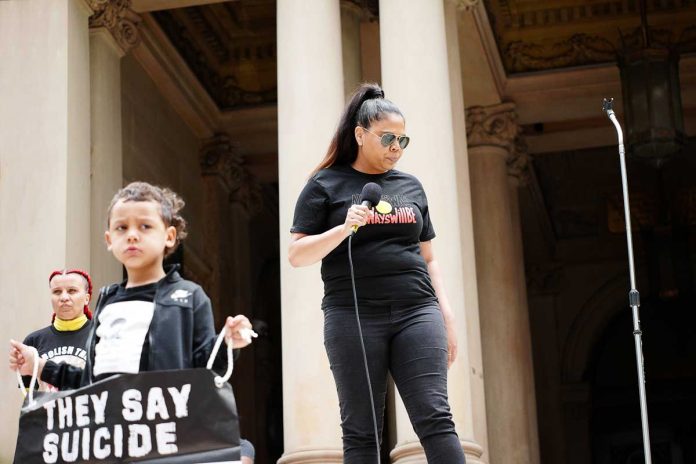September 22, a National Day of Mourning for Queen Elizabeth II, saw Abolish the Monarchy rallies in Brisbane, Melbourne, Canberra and Sydney. First Nations representatives expressed anger and sadness at ongoing injustice in the name of the Crown.
The events, organised by the Warriors of the Aboriginal Resistance (WAR) and the Fighting in Solidarity Towards Treaties group (FISTT), drew hundreds of supporters.
Lizzie Jarrett, Lynda-June Coe and Gwenda Stanley led proceedings at Sydney Town Hall.
Ms Jarrett, a Gumbaynggirr, Bundjalung and Dunghutti woman, said she felt “sick” hearing about the Day of Mourning. “Once you got around the initial hurt and pain, you realise that of course Australia is going to follow suit, but it’s 2022, why are we still under the Crown?
“It’s become blatantly clear that since the death of Queen Elizabeth Indigenous responses and experiences to colonisation and dispossession have been largely erased,” she said. “Resistance in this country has never ended, neither has the war against our people.”
Ms Coe, a Wiradjuri and Badu Island woman, said the sudden declaration of a Day of Mourning for the late monarch was “a real insult to First Nations people”.
“Our mob have been calling for our Day of Mourning for over 80 years,” she said. “It really does show that there are two sides of this story and ours unfortunately continues to be silenced.”
On January 26, 1938, a group of Aboriginal men and women gathered at Australia Hall in Sydney. It was the first national gathering of Indigenous people protesting against the prejudice and discrimination, according to the National Museum of Australia.
Sandy O’Sullivan, a Wiradjuri professor of Indigenous Studies at Macquarie University, said the idea of expecting Indigenous people to feel comfortable around celebrating the Queen’s life and to participate in mourning her death is “outrageous”.
“This was someone who did have leadership of this country, and to suggest that she was just a figurehead whom we should be celebrating forgets that this was somebody who had a lot of power and chose not to use it in important ways.”
For Ms Coe, the death of the longest-reigning monarch should re-start the conversation about Australia’s independence. “At the forefront of that we’re demanding First Nations sovereignty be addressed and more importantly realised,” she said.
“We can’t move forward as a nation if we still have underlying, unfinished business. It’s about our voices being elevated and heard.”





